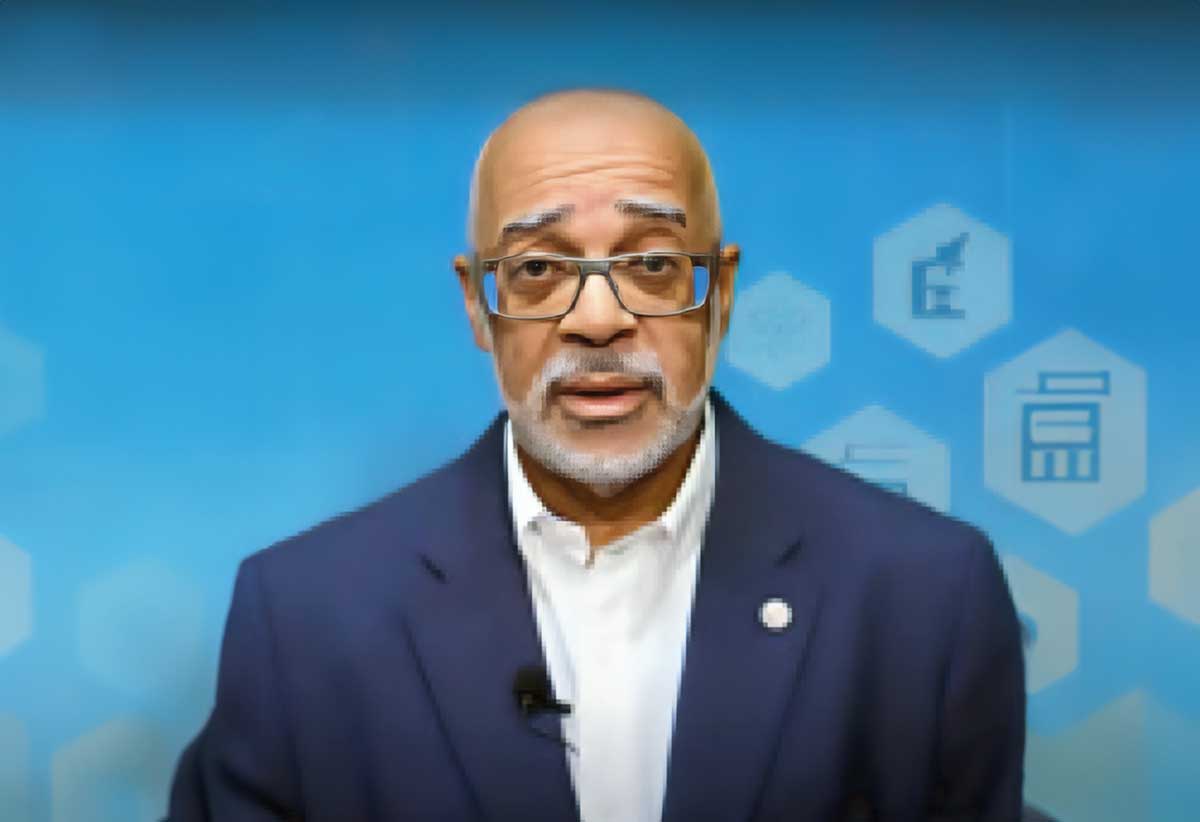
Urgent action is needed to address financial literacy in the Eastern Caribbean Currency Union (ECCU), Timothy Antoine, Governor of the Eastern Caribbean Central Bank (ECCB) said Monday.
Antoine who was speaking at the ECCU’s Financial Literacy & Financial Inclusion Survey (FLFI) launch, noted that the ECCB has sought to increase financial literacy over the years.
The ECCB in collaboration with the OECS Commission and the World Bank funded Caribbean Digital Transformation Project (CARDTP) announced the results of the FLFI survey on Monday at the ECCB’s Headquarters.
The survey captured baseline information about financial behaviour, knowledge, and attitudes of individuals throughout the ECCU. The goal is to use the data collected from the survey to create a financial inclusion strategy that will help to transform citizens awareness and access to financial products and services, and to measure progress towards financial literacy and inclusion.
“This survey is no ordinary survey. Urgent action is needed to address financial literacy and inclusion in the ECCU. Over the past 21 years the ECCB has sought to raise the level of financial literacy through our savings and investment courses, annual financial information month, and in the past seven years, through our weekly podcast ‘ECCB Connects’. For these efforts I wish to acknowledge the work of past and present ECCB staff and partners; you have helped many but many more still need to be helped,” Antoine said.
“It’s time for a strategy to scale up. As a region we are vulnerable to external shocks and therefore we must be engaged in a lifelong pursuit of building resilience including financial resilience. This is imperative for our member countries, companies and individuals,” Antoine added.
Noting that Investopedia defines financial literacy as the ability to understand certain financial issues and use financial skills for personal financial management such as budgeting and investing, Antoine said that in a region which boasts high levels of adult literacy, financial literacy is lamentably low.
“When I think of financial literacy or financial resilience I think about the capacity to absorb and bounce forward-not back, from a shock such as a health event, a job loss, an economic downturn, a natural disaster or even a pandemic. I want to situate the work that we’re doing because we have to see people and see situations, this is not about numbers and statistics,” the governor stated.
“How do we explain the following? Persons falling for scams offering prizes for competitions in which they were never registered. Persons engaging in hire purchases ignorant or indifferent to effective interest rates with some as high as 35%. The proliferation of payday loans… only 1 in 25 persons in the ECCU are invested in the regional and international capital markets and yet several persons are now taking high risk investments in cryptos,” Antoine said, adding that people are also “spending their limited income on wants while begging family, friends and government for their needs.”

Director General of the Organization of Eastern Caribbean States (OECS) Dr. Didacus Jules also addressed the audience. In a virtual message, he said that the event “marks a very significant hallmark in the cooperation between the World Bank, Eastern Caribbean Central Bank and the OECS Commission, because the study that is being launched today is an important and elemental step in our shared goal of financial inclusion; no serious strategy to achieve this can start based on assumptions.”
“This survey paints a picture of the empirical reality that we must transform. The Eastern Caribbean Currency Union as we know comprises eight-member countries all of which use the Eastern Caribbean Dollar. This shared currency ties our economies together making collective financial understanding even more crucial. When one of us thrives we all benefit. Conversely, financial instability in one country can ripple through the entire Union. Why is financial literacy important? Financial literacy isn’t just about understanding money, it is about empowering ourselves to make informed decisions,” Jules stated.
“It is the knowledge and skills to manage personal finances, understand savings, investing, borrowing and much more. When a significant number of individuals lack these skills, our entire region can suffer from high debt levels, low savings and missed economic opportunities. The big picture is that financial literacy is low across the ECCU with an average score of 12.2 out of 20 representing an acceptable level of understanding and use of finance,” the director added.
The Financial Literacy and Financial Inclusion Survey was conducted in all eight-member countries of the Eastern Caribbean Currency Union. Here are the key findings, according to the ECCB:
– The financial attitude score for the ECCU is 1.9 out of 4 or 47.6%. ECCU households focus on short-term plans and spending money rather than saving it.
– The financial behaviour score in ECCU amounts to 6.0 out to 9 or 66.5%.
– The financial knowledge score in the ECCU amounts to 4.4 out of 7 or 62.2%.
– The overall financial literacy score of the ECCU member countries equaled 12.2 (61.2% of the maximum value). The overall financial literacy score is obtained as the sum of financial knowledge (maximum score 7), financial behaviour (maximum score 9), and financial attitudes (maximum score 4). It can take any value between 0 and 20.
– Overall financial literacy was highest with persons making $3000 and over per month, while the lowest score was with persons who do not have internet access.
– Over 88% of ECCU respondents were aware of at least 5 of the 18 financial products listed. Financial inclusion indicators identify the extent to which citizens use financial products in three categories. The first category of products identified is savings, investment, or retirement products. The second category is insurance products (car and home insurance specifically), and the third is mortgages, credit cards, microloans, etc. The partial overall digital financial literacy score for the ECCU households was 3.3 out of 7 (47.1%)













